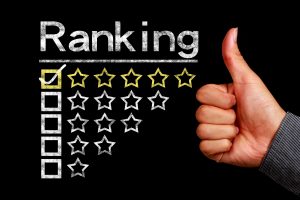Headlines last week were touting the opinion Thursday on PACER fees by the Federal Circuit Court of Appeals. The judiciary “can’t use PACER as IT slush fund,” one said. “PACER Fees Are Too High, Federal Circuit Says,” another reported. “Federal judiciary is overcharging for access to public records online,” still another said.
While none of these headlines are wrong, they could lead a reader to conclude that the judiciary’s loss in the case is a clear victory for public access and will significantly reduce PACER fees. Unfortunately, neither is true. Rather, the opinion delivers only a partial win for plaintiffs and will reduce PACER fees only a limited amount.
Nothing about this opinion will change the fact that PACER is a 32-year-old system that is, as I once wrote, “cumbersome and crotchety to use, often cryptic in its naming and coding, and archaic in its document handling.”
Nor will anything in this ruling change the fact that PACER is not free to use. To the contrary, the ruling reaffirms the authority of the judiciary to charge Electronic Public Access (EPA) fees for its use sufficient to cover the expenses of operating both PACER and the corollary CM/ECF electronic filing system.
What the ruling does do, however, is open the door to a reduction in those fees — albeit a small one — and the repayment to users of excessive fees collected from 2010 to 2016.
Notably, the Federal Circuit affirmed in its entirety the 2018 decision in the case by U.S. District Judge Ellen Segal Huvelle, stating that she “got it just right.”
In her ruling, Huvelle had rejected the principal arguments of both the plaintiffs and the defendants. The plaintiffs had argued that the judiciary could recoup PACER fees only to the extent necessary to cover the total marginal cost of operating the PACER system. The judiciary had argued it could use PACER funds for anything related to “dissemination of information through electronic means.”
Of the $920 million that the judiciary collected in PACER fees from 2010 to 2016, Huvelle had found that the judiciary misspent some $200 million of it. That ain’t hay, for sure, but it is only 22% of the total collections.
Both the Federal Circuit and Huvelle agreed that the judiciary’s expenditures of PACER fees from 2010 to 2016 were appropriate for the following purposes:
- Public access services, which was money spent directly on the operation of PACER and totaled $129.9 million for the six-year period.
- Case Management/Electronic Case Files System (CM/ECF), which totaled $217.9 million for the period.
- Communications infrastructure, services, and security, which totaled $229.4 million for the period.
- Court allotments, which totaled $74.9 million for the period.
- Electronic Bankruptcy Noticing, the system that produces and sends bankruptcy notices to creditors, which totaled $73.3 million for the period.
The expenses that both the Federal Circuit and Huvelle deemed inappropriate were all unrelated to the direct operation of PACER and the CM/ECF system. These inappropriate expenditures were:
- State of Mississippi, a one-year electronic-access pilot in 2010 that cost $120,988.
- Victim notification, a program that electronically notifies local law enforcement agencies of changes to an offender’s case history, which cost $3.7 million for the six-year period.
- Web-based juror services, which cost $9.4 million for the period.
- Courtroom technology, which cost $185 million during the period.
Put those sets of numbers together, and we see that while the rulings invalidated expenditures of $198.2 million for the six-year period, they upheld expenditures of $725.4 million for that same period.
Now, this may be an overly simplistic analysis on my part, but if PACER currently charges 10 cents per page, and these rulings have invalidated 22% of the expenditures for which those fees were used, then it seems to follow that the judiciary can still charge nearly 8 cents per page.
All of that said, the Federal Circuit did open the door to one further possible reduction in EPA fees, and that involves the judiciary’s expenditures to operate the CM/ECF system. The circuit court said that the district court record lacked sufficient information for it to decide whether EPA fees could permissibly be used to cover all the costs of maintaining the CM/ECF system.
On remand, the Federal Circuit said, it would be up to Huvelle to decide whether to permit additional argument and discovery on this issue.
This case is far from over. On remand, Huvelle will have to decide whether to consider the CM/ECF issue and then go on to decide damages. Whatever she does, there will almost certainly be further appeals.
If PACER is ever to be fully free, it will happen only through an act of Congress. Three bills currently pending (H.R. 1164, S. 2064 and H.R. 6017) would do exactly that — make PACER free and also mandate development of a modern system.
Of course, if there is anything more dysfunctional than PACER, it is Congress. For the time being, that means this much remains true: The clunky PACER system will continue to operate as is, and we will continue to be charged fees for its use.
Robert Ambrogi is a Massachusetts lawyer and journalist who has been covering legal technology and the web for more than 20 years, primarily through his blog LawSites.com. Former editor-in-chief of several legal newspapers, he is a fellow of the College of Law Practice Management and an inaugural Fastcase 50 honoree. He can be reached by email at ambrogi@gmail.com, and you can follow him on Twitter (@BobAmbrogi).
is a Massachusetts lawyer and journalist who has been covering legal technology and the web for more than 20 years, primarily through his blog LawSites.com. Former editor-in-chief of several legal newspapers, he is a fellow of the College of Law Practice Management and an inaugural Fastcase 50 honoree. He can be reached by email at ambrogi@gmail.com, and you can follow him on Twitter (@BobAmbrogi).
 Jordan Rothman is a partner of The Rothman Law Firm, a full-service New York and New Jersey law firm. He is also the founder of Student Debt Diaries, a website discussing how he paid off his student loans. You can reach Jordan through email at jordan@rothmanlawyer.com.
Jordan Rothman is a partner of The Rothman Law Firm, a full-service New York and New Jersey law firm. He is also the founder of Student Debt Diaries, a website discussing how he paid off his student loans. You can reach Jordan through email at jordan@rothmanlawyer.com.












 Kathryn Rubino is a Senior Editor at Above the Law, and host of
Kathryn Rubino is a Senior Editor at Above the Law, and host of 


